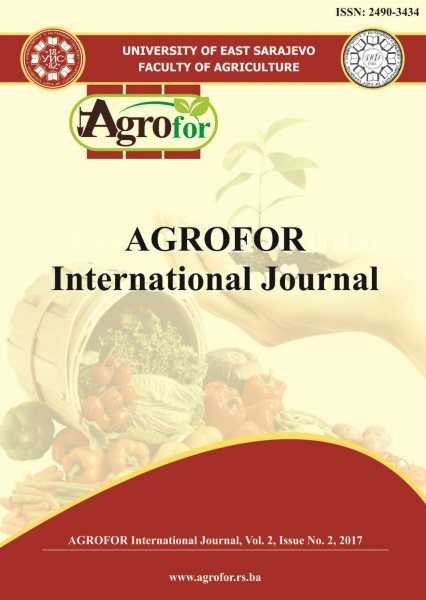IN VITRO SCREENING OF INSECTICIDAL EFFECT OF PLANT AQUEOUS EXTRACTS ON THE COWPEA APHID APHIS CRACCIVORA
DOI:
https://doi.org/10.7251/AGRENG1702075LAbstract
The research of new control methods that have low negative effects represent an
alternative aiming to limit disadvantages of chemical control of pests. This study
aimed to test the effect of 11 aqueous plant extracts belonging to four species
(Santolina africana, Juniperus thurifera, Artemisia herba-alba and Pituranthos
scoparius), on the larvae of the aphid Aphis craccivora installed on the leaves of
Robinia pseudoacacia under laboratory conditions. The insecticidal effect of
aqueous extracts on the mortality of aphids was evaluated by the introduction of
acacia leaflet into an extract and infestation of them by 10 larvae of the aphid.
Later, a counting of dead larvae after 3, 6, 12 and 24 h was performed. In addition,
we investigated the effect of the aqueous extracts on the orientation of the aphids
by putting the latter in a position of choice between six leaflets, each treated with a
different extract. In addition, a phytochemical screening was carried out to detect
the presence of saponins and polyphenols in the extracts studied. Through our
study, the extract obtained from S. africana at a concentration of 15% was the most
effective with a mortality rate higher than 80% after 24 h of artificial infestation.
As for the effect of the four extracts on the orientation of the cowpea aphid, they
did not attract the larvae massively. Regarding phytochemical screening,
differences in the chemical composition of the analyzed extracts were observed.
These differences may explain in part the variation of aphicidal effects of tested
plant extracts.

